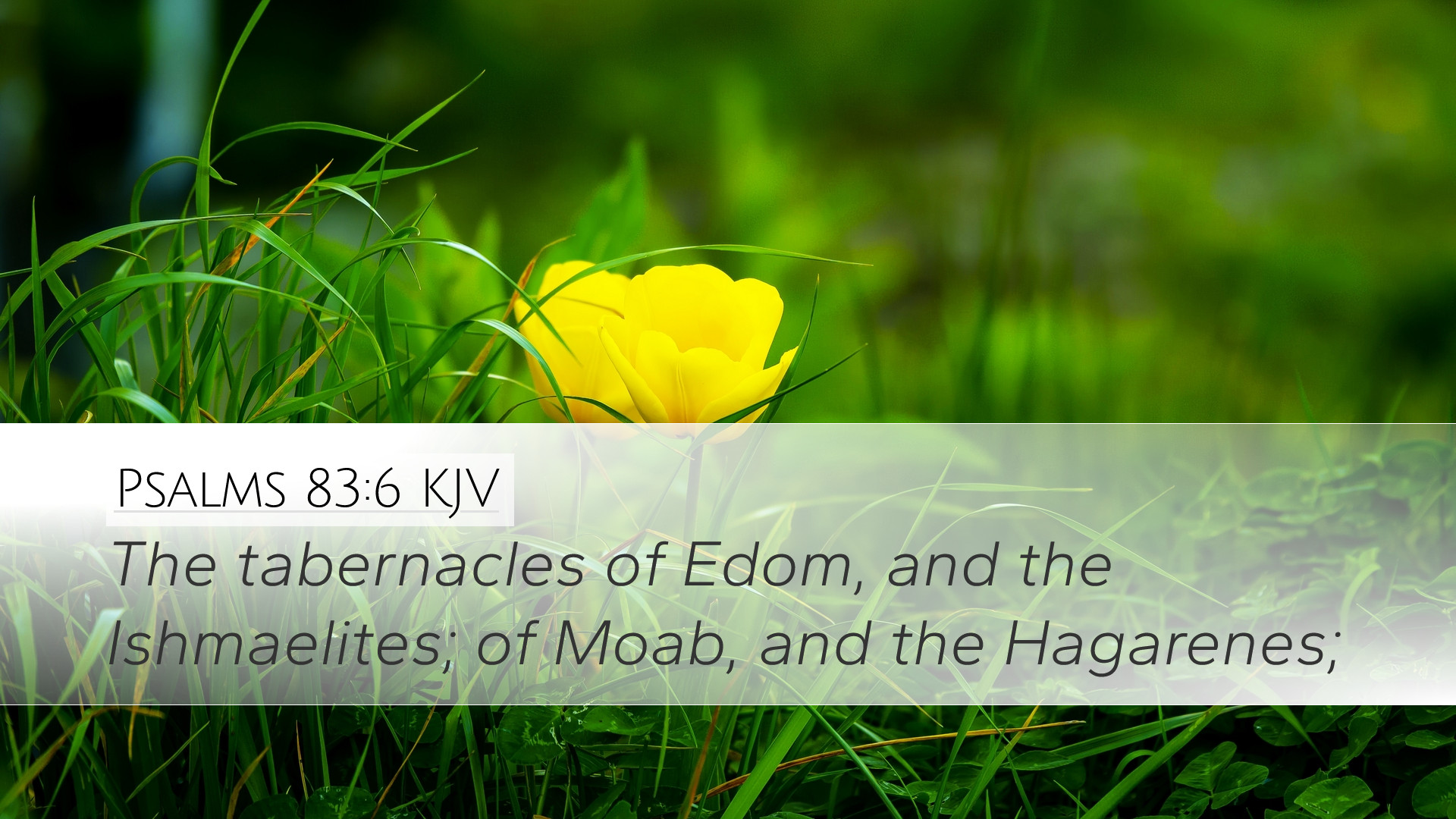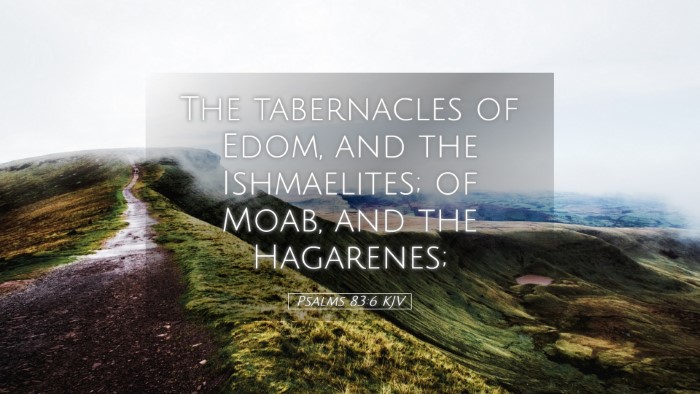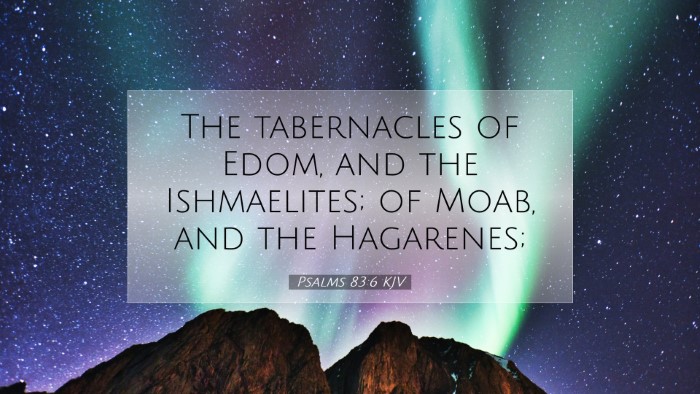Introduction
The 83rd Psalm is a communal lament that highlights the urgent plea of God’s people for help against an impending threat from a coalition of nations. This psalm underscores the collective identity of Israel and the significance of divine intervention in their struggles. The mention of specific groups in verse 6 warrants in-depth analysis, as it reveals the historical hostilities faced by Israel.
Contextual Background
To fully appreciate the implications of Psalms 83:6, it's essential to consider the historical context during which the psalm was likely composed. This period is characterized by fervent hostility towards Israel from neighboring nations. Each of the groups mentioned in this verse symbolically represents the various threats to Israel's existence.
Commentary Insights
Matthew Henry's Commentary
Matthew Henry expounds on the significance of each group referenced in this verse. He notes that Edom, descendants of Esau, were long-standing adversaries to Israel, symbolizing betrayal, as they were also kin by descent. The Ishmaelites, descendants of Ishmael, represent the nomadic tribes of Arabia and signify the perpetual conflict that arose from the competition for resources.
Henry also highlights Moab as a nation rooted in animosity towards Israel, particularly after Moab's historical reluctance to aid Israel during their exodus from Egypt. The Hagarenes, a group that refers to descendants of Hagar, signify another layer of enmity driven by genealogical ties and rivalry over inheritance—an allegory of spiritual inheritance as well.
Albert Barnes' Notes on the Bible
Barnes reflects on the strategic alliances formed against Israel, providing a larger theological implication. He notes that these alliances represent the collective animosity and enmity towards God's chosen people. The mention of these specific nations serves as a reminder of the ongoing conflict that is both historical and prophetic.
Barnes emphasizes that the psalmist calls upon God not merely for physical protection, but rather seeks divine affirmation of Israel’s chosen status, thus making the plea for salvation deeply spiritual. He argues that calling out these nations underscores the weight of their opposition in the heavenly context, making it evident how the earthly struggle mirrors spiritual warfare.
Adam Clarke's Commentary
Clarke provides an insight into the etymology and history of each group, illuminating the cultural implications behind their references. He explains that the term Edom means 'red', hinting at their past connection to Jacob through the story of the red stew. This historical connection deepens the sense of betrayal felt by Israel. Clarke outlines the Ishmaelites as a multitude of tribes that were not only hostile but also unpredictably violent, emphasizing their nomadic and dispositional qualities that challenged Israel's stability.
In discussing Moab, Clarke expounds on its origins from Lot’s incestuous relationship, serving as an example of how such origins contributed to their longstanding disdain for Israel. The Hagarenes are described as enemies who, even though they originated from the same familial context (Hagar), displayed hostility towards God’s people, showcasing a universal theme of division coming from shared ancestry.
Theological Implications
The collected insights from these esteemed commentators highlight a crucial theological nuance regarding the nature of enmity towards God’s people. It illustrates the consistency of hostility faced by Israel throughout their history, which reflects broader spiritual truths about the nature of sin and human conflict. Each group serves to illustrate a spiritual principle: that opposition to God and His people results not only in physical discord but also in spiritual ramifications.
Conclusion
Psalms 83:6 thus represents an urgent reminder of the historical and spiritual battles faced by God’s people throughout the ages. As pastors, students, and theologians reflect upon these groups, they are encouraged to acknowledge the layers of historical context and the profound spiritual realities at play. The psalm serves as both a plea for immediate divine intervention and a timeless reminder of God’s faithfulness amidst trial.
Application for Today
This verse and its commentary provoke contemporary believers to consider the ongoing spiritual struggles faced by the Church. Just as Israel sought divine protection and intervention, modern believers must turn to God, recognizing that spiritual warfare continues and that discernment is crucial in a world with various forms of opposition.


